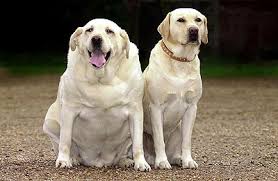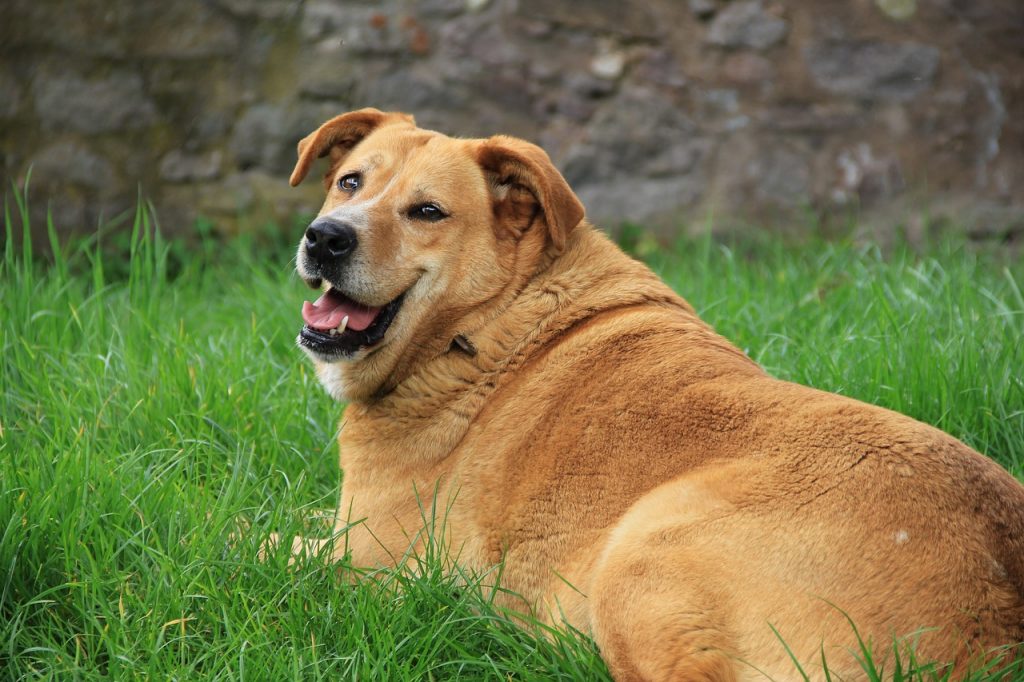Did you know that more than 45% of dogs are overweight or obese, with a gain of even a kg of additional fat placing significant stress on the body? It is not surprising that excess weight can take as much of a toll on a dogs body as it does on a human’s body.
Approximately 25% of overweight dogs develop musculoskeletal complications. The bones, joints, muscles, and associated tendons and ligaments all work together to give dogs efficient movement. If they’re required to carry excess weight they have to work harder, leading to injury or early degenerative conditions, such as arthritis.
Other conditions that may occur due to excess body weight include diabetes, high blood pressure, heart and respiratory disease, liver disease, heat intolerance, increased surgical risk, decreased immune function and increased risk of developing tumors.

So how do you know if your dog is overweight?
- Standing close to your dog, from behind, check that they have a waist
- Look from beside your dog and they should have a tuck in their abdomen
- If you place your hands on their ribs they should have a small layer of fat, much like the back of your hand. If their ribs feel like your knuckles they are too thin and if they feel like your palm they’re overweight.

It’s not too late to help your dog get to an ideal weight. Even a 6-8% decrease in body fat can reduce the lameness and pain associated with arthritis.
Before embarking on any weight loss strategies its important to see your Vet to make sure there are no medical reasons your dog may be holding excess weight. They can also offer advise on the type and amount of nutrition, as well as whether your dog could benefit from increasing its exercise levels. Be honest with yourself though and make sure you bring up your dog’s weight. Don’t just take them in for a check up and avoid the subject.
Strategies to help your dog lose weight:
- Avoid giving your dog those daily treats, feeding them from the table, and/or giving them excess food at meal times.
- If you’re using treats as a training tool then these need to come out of your dogs daily food intake rather than be in addition.
- Measure your dogs food. Don’t guesstimate.
- You may also be able to utilize negligible calorie foods such as carrots or broccoli, but talk to your Vet first.
- Another strategy is to stop feeding your dog out of a bowl that they gobble up in 30 seconds. You could use a feeding toy such as a ball or Kong toy where you put the kibble inside, a snuffle mat, or you could use a treasure / food hunt. My dogs favorite is his cushion from K Mart. He’s not a toy destroyer and his favorite toys are his soft toys so the cushion works perfectly.
Good luck with your journey. It may take some time but your dog with thank you for it.
If you would like to talk more about your dogs musculoskeletal health don’t hesitate to get in contact.

